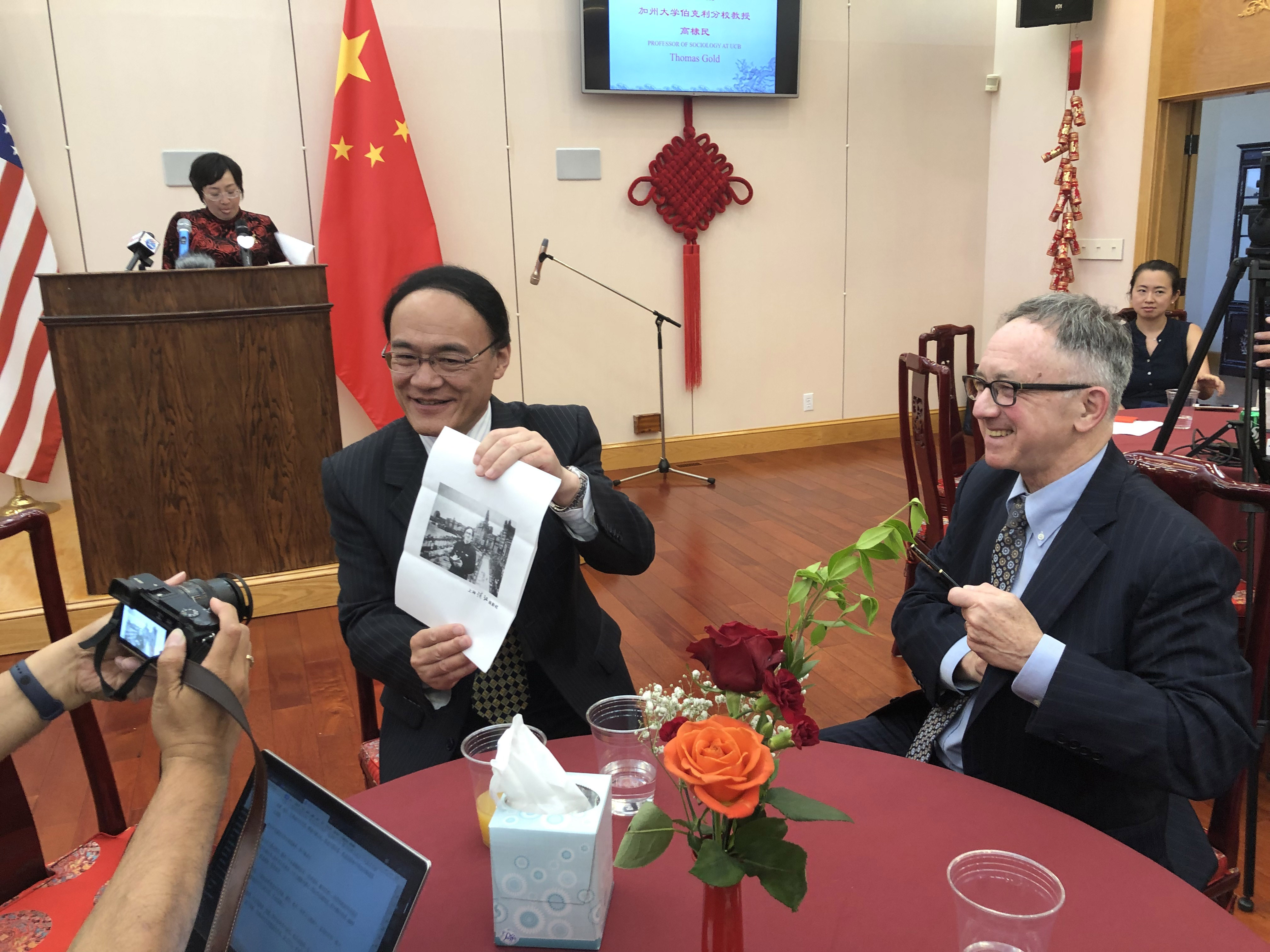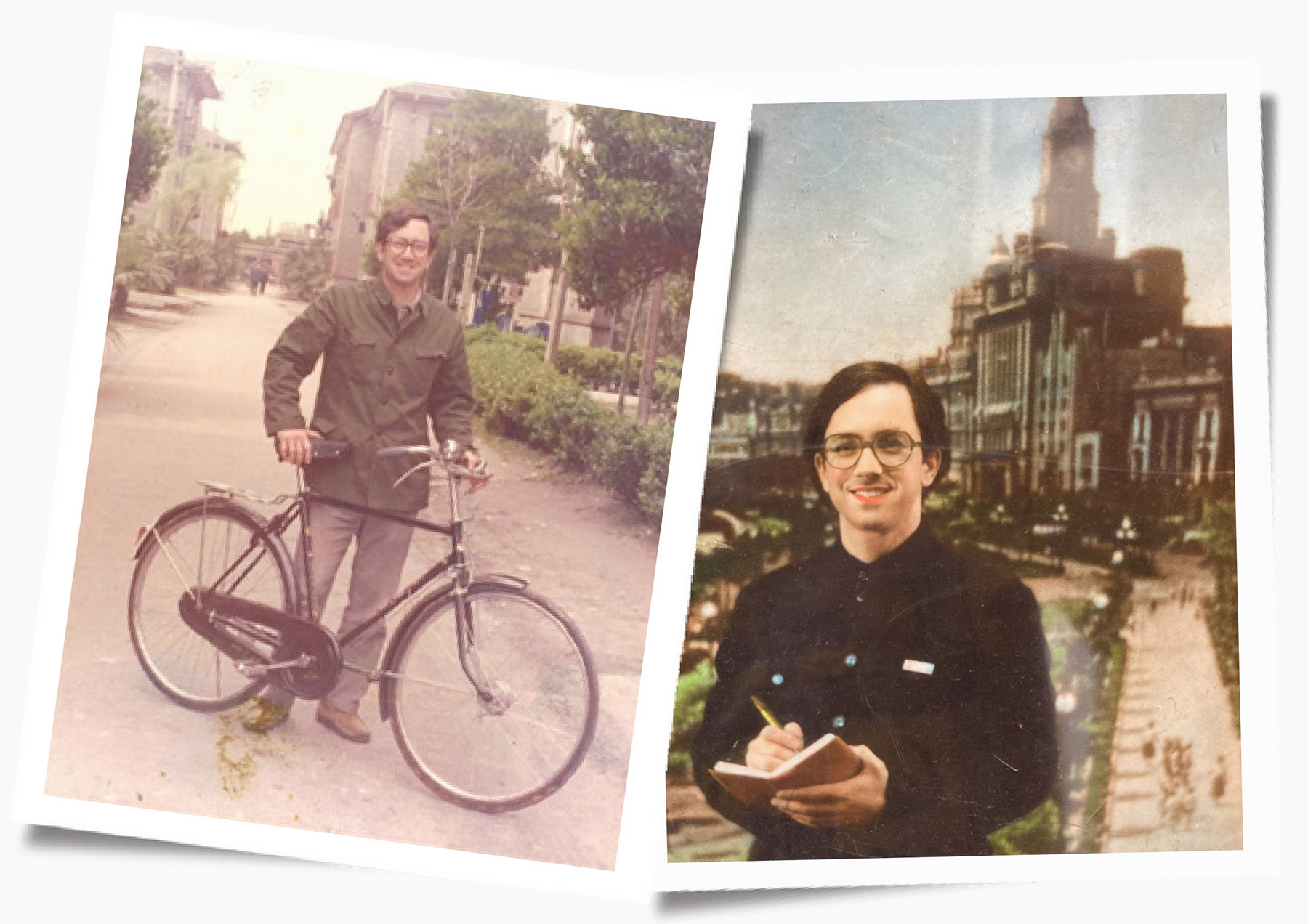Witnessing reform and opening-up, Sinologist continues to illuminate minds with his passion

Editor's note: As the People's Republic of China celebrates the 75th anniversary of its founding this year, China Daily asked prominent international figures to reflect on their relationship with the country and to talk of the direction in which they see it going.
When Thomas Gold arrived in Shanghai in February 1979, just two months after China started its reform and opening-up, the 30-year-old graduate student found himself in a country of new beginnings.
While at Harvard University, Gold was among the first group of US exchange students to study in China, spending a year at Fudan University from 1979 to 1980.
"China's in my head all the time," he said. "I have been working for decades to try to understand China and help other people to understand China."
A professor emeritus of sociology at University of California, Berkeley, where he taught from 1981 to 2018, Gold also founded the Berkeley China Initiative and served as chair of the Center for Chinese Studies.
He has published widely on issues such as youth, entrepreneurship, civil society and popular culture in China. He is working on a memoir of his early years in China.
READ MORE: Following in Du Fu's footsteps
Reflecting on the social changes over the past four decades, he said the contrasts between then and now are "extraordinary".
"The sun was coming out and the long period of darkness and confusion was ending," recalled Gold, referring to the end of the "cultural revolution" (1966-76). "One of the things that impressed me was beginning in 1979, there was a sense that a new dawn was coming, that a new world was going to open up for the people of China."
His encounters with Chinese people were particularly striking. He met university students, many in their 30s, who had lost years of education because of the "cultural revolution".Their hunger for knowledge and desire to contribute to China's revival were palpable, he said.
He also formed friendships with people outside the university and Shanghai, gaining a broader perspective on life in China.
Before he went to China, Gold had worked as an interpreter for the US State Department and the National Committee on US-China Relations, beginning in 1974. During that period, he interpreted for many Chinese visitors, including athletes, performers and officials, accompanying them around the United States.
When he went to China, he looked many of them up.
"My contacts in Chinese society were broader than just the university, and I felt that I got a more well-rounded picture of what life was like," he said. "I really missed some of the things in the old days, even though there was so much inconvenience."
For Gold, the path to a lifelong passion for Chinese language and culture began with a simple dare. As a freshman at Oberlin College in Ohio in the 1960s, a captivating Asian history course sparked his curiosity.
His professor, a veteran of China himself, painted a vivid picture of a nation steeped in history. Inspired, Gold, along with a group of classmates, decided to embark on a seemingly outlandish journey at that school — learning Chinese.
"Because of Oberlin's ties with China in the 1960s, they offered Chinese language, which was very, very rare in those days. A group of us loved the course on Chinese history, and we said: I'd really like to study Chinese, but it seems so crazy. So we dared each other — I'll do it if you do it," Gold said.
"So I studied Chinese… I've never been so passionate about anything than studying the Chinese language. It opened up a whole world to me of things I'd never thought about before. And till this day, I can't get rid of it — my sort of passion for Chinese language and China."

Firsthand experience
He advised his graduate students to go beyond textbooks, experience the country firsthand, make friends and have a sense of China as "a real living place".
"You have to have experience in the field; you have to have real Chinese friends that interact with you. You can't just read books or look at documents. You really have to engage with society and experience," he said.
Witnessing China's transformation firsthand, Gold reflected on the profound social changes that have swept the nation over the past four decades.
One of the important things that has happened since the opening-up was that "a lot of the lid which had been put on Chinese people's creativity and entrepreneurship was removed", Gold said.
ALSO READ: Flying Tigers: Connecting past and present
"We saw this explosion of creativity and entrepreneurship contributing to the modernization of the country. People could bring their talents into full play. Over the course of more than 40 years, there's extraordinary and rapid economic development, and what's also important is China's integration into the global society."
The increasing social integration of Chinese people into global society was "a major change" and "extremely important", he said.
"For instance, here at Berkeley, every semester we have hundreds, if not thousands of Chinese students coming for short-term or long-term educational opportunities. In summer, we also have a lot of Chinese students who come here to work on their English and just experience global society," said Gold. "I think this is really a major positive development."
Contact the writers at liazhu@chinadailyusa.com


